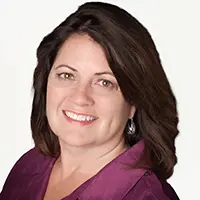By Emma Daly, Senior, San Diego State University

Connections are the foundation of the event industry. Networking helps professionals build supportive relationships, establish their reputations and learn from their peers.
Networking allows those new to the industry to seek guidance from seasoned professionals. A study showed in the last 25 years, there has been a dramatic increase in mentoring as a formal educational measure. In higher education, mentorship can act as a compass for students navigating an industry.
Julie Smith has been a member of IAEE for more than three decades and understands the value of mentorship. Smith, who previously served on the IAEE board, takes her role as a mentor for the San Diego State University hospitality and tourism management graduate programs very seriously.
The SDSU program, an educational partner of IAEE, strategically matches each graduate student with a mentor during their in-person visit to campus. Once paired, the mentor and mentee work together throughout the program.
“The way the SDSU program is set up is very student driven,” said Smith. “The student is supposed to decide what they want from the mentor. It’s very individual for each mentor and student.”
Mentorship can be effective for professional development when tailored to the mentee.
Smith, who has formally mentored for SDSU graduate programs, shared her insight on the best practices for professional mentorship.
Tips for Mentors
Mentorship encompasses teaching, guidance and collaboration. The relationship between mentor and mentee is a continuous process, even after the formal mentorship period ends.
A study showed that mentees are most successful when their mentors help facilitate their integration into the professional community.
Smith offers three recommendations for mentors.
Tip #1: Be generous with time.
Agreeing to be a mentor is a big commitment. Think of it as taking on a new client. It’s going to take time to get to know them, assess their needs and provide them with the support they need. Be ready to block off time in your calendar and prioritize your mentee.
Tip #2: Be generous with information.
Your role as a mentor is doing a service to your industry. Your mentees are the future leaders. The more you give, the better your mentees will be able to make informed decisions and overcome challenges. Being generous with information is not only a gesture of goodwill, but an investment in the future of your industry.
Tip #3: Help people make connections.
Being a mentor doesn’t necessarily mean having all of the answers. Sometimes, your mentee may benefit more from a connection you give them. Especially since networking plays a crucial role in the event industry, helping them build a network of contacts is one of the most valuable assets you can give your mentee.
Tips for Mentees
Mentees benefit from new perspectives and insights, which open doors to new opportunities in their personal and professional lives.
A study found that professionals who had mentors were more likely to give back by becoming a mentor themselves.
Smith shares three tips on mentorship from the mentees’ perspective.
Tip #1: Be specific.
Your first job as a mentee is to know what you want to gain from the mentorship. Once you’re clear on that, it’s important to be specific while communicating it to your mentor. The more specific you are with your needs, the more tailored advice they will provide you.
Tip #2: Be ready for change.
When entering a mentorship, it’s important to keep an open mind. You are asking someone for fresh perspectives. If what your mentor tells you isn’t what you anticipated, trust that they have your best interest in mind. In order to make changes in your life, you must change your actions. Being ready for change is a fundamental mindset for personal and professional growth.
Tip #3: Respect your mentor’s time.
Your mentor was most likely selected because they have a successful career. Keep in mind that they have a busy job that they are taking time away from to help you. Treat calls with your mentor as business meetings. Have an agenda and be prepared for what you want to talk about. This will show your mentor that you respect their time and will help efficiently achieve your goals.
Mutually Beneficial
The beauty of mentorship is both parties can learn from each other. Smith’s experience as a mentor came with not only gratification from seeing her mentees thriving, but new understandings of the workforce.
“It allowed me to get perspective on what people are looking for in the job force these days… as someone who employs people, it’s important to stay in touch with what people are looking for.”
Mentorship not only connects individuals, it helps people get a better comprehension of entire generations.
The SDSU hospitality and tourism management graduate programs provide all the necessary resources for their students to have successful mentorships. Students have left the mentorship program with not only assets to their networks, but lifelong friendships. As partners of IAEE, the graduate programs represent the future of the event industry.
To learn more about the SDSU graduate programs, visit:
Applications are open now through 1 July 2024.
References:
Stoeger, H., Balestrini, D. P., & Ziegler, A. (2021). Key issues in professionalizing mentoring practices. Annals of the New York Academy of Sciences, 1483(1), 5-18. https://doi.org/10.1111/nyas.14537
Sargent, J., & Rient, B. (2022). Unpacking effective mentorship practices for early career academics: A mixed-methods study. International Journal of Mentoring and Coaching in Education, 11( 2), 232–244. https://doi.org/10.1108/IJMCE-05-2021-0060.
About the Author

Emma Daly is a senior at San Diego State University studying journalism with an emphasis in public relations. She has a passion for storytelling and curating events. Emma plays a crucial role in the SDSU Payne School of Hospitality master’s programs campaign. In her free time, she competes for the SDSU water ski and wakesports team, surfs and does yoga. She’s originally from Wethersfield, Connecticut and plans on staying in San Diego after graduating in May 2024.


